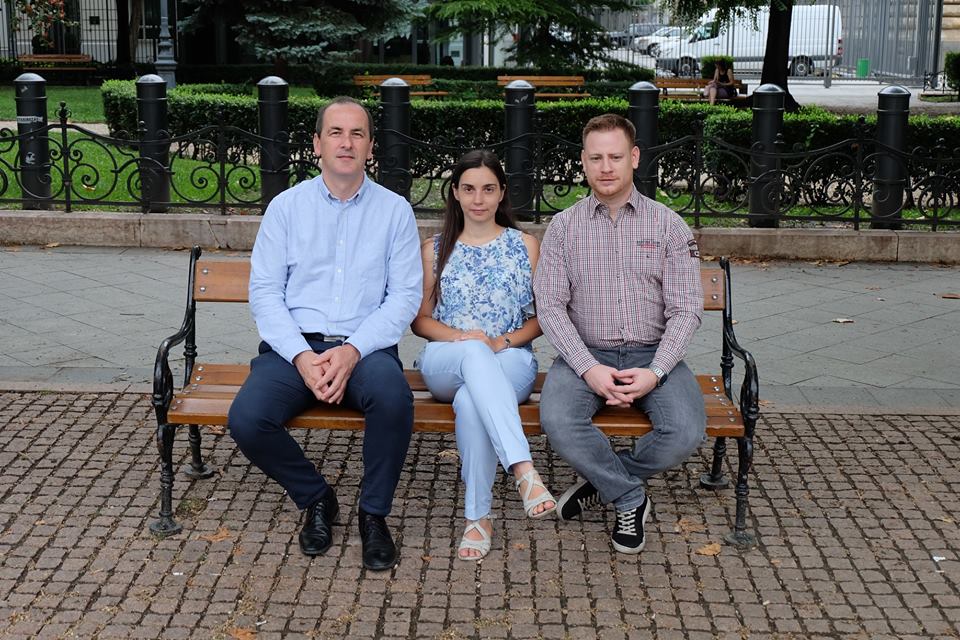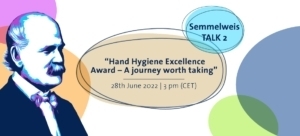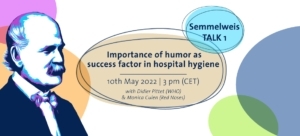The Hungarian initiative jobbulást! (=get well!) started its first campaign which targets the development of hand hygiene. “Reduction of nosocomial infections is a crucial need in Hungary”, says Dr. Judit Pako, MD board chief of jobbulást. We asked her about the aims and projects of the initiative…
Judit, when did the Jobbulást! initiative start existing? And what actions could you currently launch?
Our NGO was founded in January 2018. It’s name Jobbulást! which means Get well! in Hungarian. The objective of the Foundation is to trigger tangible improvement in the health care system with small steps, bottom-up initiatives.
Our first campaign targets the development of hospital hand hygiene.
Reduction of nosocomial infections is a crucial need in Hungary, and for that aim, the best and cheapest way is prevention. Therefore we planned a project based on three pillars. (It is called Semmelweis 200 – With clean hands for getting well.) The first pillar is to make alcoholic hand rub available at every point of care. In Hungary, the alcoholic disinfectant consumption is one of the lowest in Europe, so it needs urgent intervention. Therefore, the Foundation asks for donations, both from the population and enterprises to purchase alcoholic hand rub and the necessary equipment (i.e. holders, dispensers) and donate them to hospitals.
But availability in itself does not mean good compliance. The other two pillars aim to initiate an attitude change. We created a pin for healthcare workers, showing that they are devoted to perform proper hand hygiene. We also prepared a patient education poster that explains the importance of hand hygiene and encourages patients to ask any hand hygiene related questions from their caregivers, and if they would like to, even ask if they have properly washed their hands before contact. We launched the project in May, when we gave a donation package for a value of 6500 eur to a hospital in Budapest.
What are the first experiences since the beginning of your project “Semmelweis 200” in May (feed-back of healthcare workers, patients)?
The first honest feed-back we received came from a nurse, even before the launch of the project. We entered a patient room to see which type of hand rub holder fits on the beds of that hospital. When a nurse, working in the room noticed the holder, shouted instinctively: Ohhhh how great! Will we have these? At this moment we knew that alcohol at the point of care was an old unmet need.
At hospital level, the donation was very warmly welcomed. The other elements of the campaign needed more explanation and time to convince both the management and the staff. In Hungary, it is a disruptive form of communication to wear pins and also to encourage patients for such a direct interaction with caregivers. It is very common in the UK and some other western countries, but not in Hungary. After long discussions, everyone understood and accepted the idea behind it, that this is a way to make both sides make efforts, to be active participants of the process.
Our greatest pleasure was when the hospital management expressed its engagement to the long-term maintenance of the donated holders. Actually, this is our real aim: to raise attention, make the first step, and then let it go on its own.
Are other Hungarian hospitals also interested to participate?
We received interest calls from other hospitals, but unfortunately at the moment we don’t have enough resources to provide such a donation to another hospital. It would be really nice if hospitals would apply to join the part of the campaign which raises attention of workers and patients, but reality shows that it is the donation that opens the doors.
Do you think that the 200th birth anniversary of Ignaz Semmelweis helps your campaign, and what must we all do that the interest for his achievements do not decrease after 2018?
Within professional circles, nosocomial infections and antimicrobial resistance has been a hot topic for a long time.
Semmelweis’ Year gives us a perfect occasion to reach a broader population with our communication. But it does more than awareness raising and keeping the issue burning. In our view, it also has a very serious message, rather a warning: It shows us that we are facing a problem, which has been well-known for centuries, a problem of which the solution has been discovered 170 years ago. 170 years ago Semmelweis made hand disinfection obligatory. Today it is still something we have to fight for. We all know in theory but do not practice.
The 200th anniversary should be a wake-up call that even if we are constantly searching for new, groundbreaking discoveries, sometimes we should take one step back and re-discover old ones.
As for the long run, we believe that if the availability of disinfectants is coupled with the inner motivation of healthcare workers for performing proper hand hygiene and also with a constant expectation of patients, hospital acquired infections will decrease and Semmelweis could be a little bit prouder.




